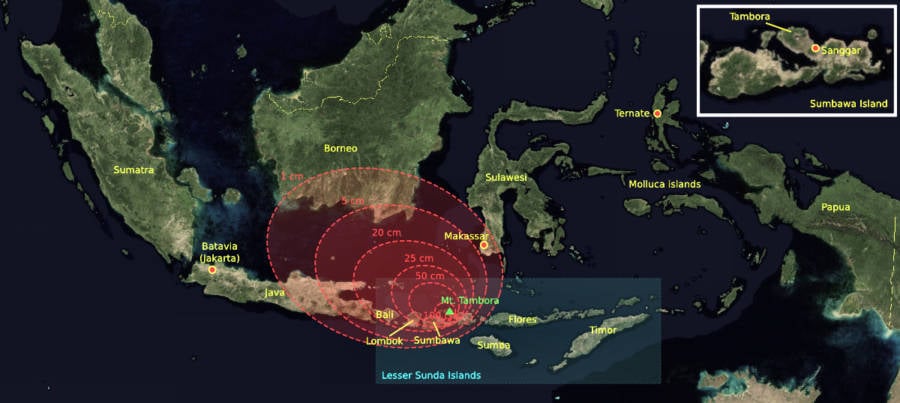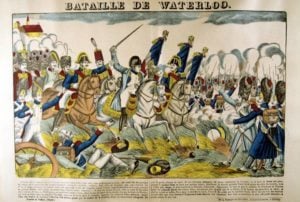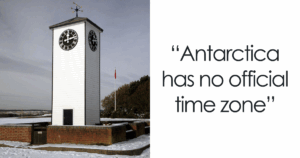“How a Cataclysmic Eruption Shaped Napoleon’s Fate: The Surprising Link Between Indonesia and Waterloo”
In the case of particularly large eruptions, this phenomena of static ash can reach the uppermost levels of the atmosphere and create abnormal weather disruptions across the world. Mount Tambora’s Volcanic Explosivity Index rates a seven on a scale from one to eight, and so it’s no wonder that the fallout from this eruption led to “a year without summer” and potentially altered the weather that would lead to Napoleon’s demise in his eponymous wars.

Wikimedia CommonsThis infographic displays the magnitude of Mount Tambora’s explosion.
While there isn’t enough reliable weather data from 1815 to prove Dr. Genge’s theory as it specifically relates to Mount Tambora, he does emphasize the point that Europe experienced unseasonably wet weather in the months following the eruption. Dr. Genge believes that the weather “could be explained by suppression and subsequent recovery of cloud formation owing to levitation of volcanic ash.”
And Dr. Genge specifically mentions the Battle of Waterloo as a point of reference to prove his theory: “The wet weather in Europe has, furthermore, been noted by historians as a contributing factor in the defeat of Napoleon Bonaparte at the Battle of Waterloo.” Who knew that a volcano on the other side of the world might be to blame for Napoleon’s defeat.
Next, check out these astounding photos of Pompeii’s bodies frozen in time. Then, read this story about another world altering volcanic eruption.














